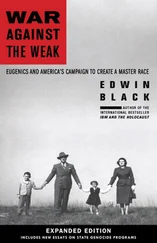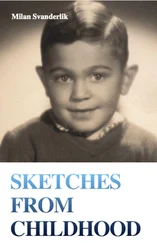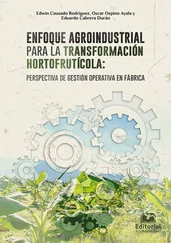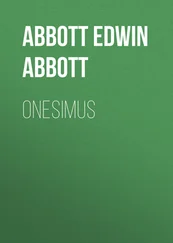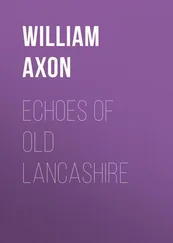Edwin Waugh - Lancashire Sketches
Здесь есть возможность читать онлайн «Edwin Waugh - Lancashire Sketches» — ознакомительный отрывок электронной книги совершенно бесплатно, а после прочтения отрывка купить полную версию. В некоторых случаях можно слушать аудио, скачать через торрент в формате fb2 и присутствует краткое содержание. Жанр: Путешествия и география, foreign_antique, foreign_prose, на английском языке. Описание произведения, (предисловие) а так же отзывы посетителей доступны на портале библиотеки ЛибКат.
- Название:Lancashire Sketches
- Автор:
- Жанр:
- Год:неизвестен
- ISBN:нет данных
- Рейтинг книги:4 / 5. Голосов: 1
-
Избранное:Добавить в избранное
- Отзывы:
-
Ваша оценка:
- 80
- 1
- 2
- 3
- 4
- 5
Lancashire Sketches: краткое содержание, описание и аннотация
Предлагаем к чтению аннотацию, описание, краткое содержание или предисловие (зависит от того, что написал сам автор книги «Lancashire Sketches»). Если вы не нашли необходимую информацию о книге — напишите в комментариях, мы постараемся отыскать её.
Lancashire Sketches — читать онлайн ознакомительный отрывок
Ниже представлен текст книги, разбитый по страницам. Система сохранения места последней прочитанной страницы, позволяет с удобством читать онлайн бесплатно книгу «Lancashire Sketches», без необходимости каждый раз заново искать на чём Вы остановились. Поставьте закладку, и сможете в любой момент перейти на страницу, на которой закончили чтение.
Интервал:
Закладка:
Blest with a clear and masculine understanding, and a keen discernment into the humours and foibles of others, he knew how to take the best advantage of those occasional interviews in order to promote trade, as he was wont to call it, though his natural temper was very far from being of a mercenary cast; it was often rather too free and generous; more so than prudence, with respect to his family, would advise, for he would sooner have had a lenten day or two at home, than done a shabby and mean thing abroad.
Amongst other persons of good fortune, who often called upon him at Milnrow, or sent for him to spend a few hours with him at Rochdale, was a Mr. Richard Hill, of Kibroid and Halifax, in Yorkshire, then one of the greatest cloth merchants, and also one of the most considerable manufacturers of baizes and shalloons in the north of England. This gentleman was not only fond of his humourous conversation, but also had taken up an opinion that he would be highly useful to him as his head clerk, in business, from his being very ready at accounts, and writing a most beautiful small hand, in any kind of type, but especially in imitation of printed characters After several fruitless attempts, he at last, by offers of an extravagant salary, prevailed upon Mr. Collier to enter into articles of service for three years, certain, and to take his family to Kibroid. After signing and sealing, he called upon me to give notice that he must resign the school, and to thank me for my long-continued friendship to him. At taking leave, he, like the honest Moor—
Albeit, unused to the melting mood,
Dropped tears as fast as the Arabian tree,
Their medicinal gum.
And, in faltering accents, entreated me not to be too hasty in filling up the vacancy in that school, where he had lived so many years contented and happy: for he had already some forebodings that he should never relish his new situation and new occupation. I granted his request, but hoped he would soon reconcile himself to his new situation, as it promised to be so advantageous both to himself and family. He replied, that "it was for the sake of his wife and children, that he was at last induced to accept Mr. Hill's very tempting offers, no other consideration whatever could have made him give up Milnrow school, and independency."
About two months afterwards, some business of his master's bringing him to Rochdale market, he took that opportunity of returning by Belfield. I instantly perceived a wonderful change in his looks: that countenance which used ever to be gay, serene, or smiling, was then covered, or disguised with a pensive, settled gloom. On asking him how he liked his new situation at Kibroid, he replied, "Not at all;" then, enumerating several causes for discontent, concluded with an observation, that "he never could abide the ways of that country, for they neither kept red-letter days themselves nor allowed their servants to keep any." Before he left me, he passionately entreated that I would not give away the school, for he should never be happy again until he was seated in the crazy old elbow chair within his school. I granted his request, being less anxious to fill up the vacancy, as there were two other free schools for the same uses within the same townships, which have decent salaries annexed to them.
Some weeks afterwards I received a letter from Tim, that he had some hopes of getting released from his vassalage; for, that the father having found out what very high wages his son had agreed to give him, was exceedingly angry with him for being so extravagant in his allowance to a clerk; that a violent quarrel betwixt them had been the consequence; and from that circumstance he meant—at least hoped—to derive some advantage in the way of regaining his liberty, which he lingered after, and panted for, as much as any galley-slave upon earth.
Another letter announced that his master perceived that he was dejected, and had lost his wonted spirits and cheerfulness; had hinted to him, that if he disliked his present situation, he should be released at the end of the year; concluding his letter with a most earnest imploring that I would not dispose of the school before that time. By the interposition of the old gentleman, and some others, he got the agreement cancelled a considerable time before the year expired; and the evening of the day when the liberation took place, he hired a large Yorkshire cart to bring away bag and baggage by six o'clock next morning, to his own house, at Milnrow. When he arrived upon the west side of Blackstone Edge, he thought himself once more a Free Man; and his heart was as light as a feather. The next morning he came up to Belfield, to know if he might take possession of his school again; which being readily consented to, tears of gratitude instantly streamed down his cheeks, and such a suffusion of joy illumined his countenance, as plainly bespoke the heart being in unison with his looks. He then declared his unalterable resolution never more to quit the humble village of Milnrow; that it was not in the power of kings, nor their prime ministers, to make him any offers, if so disposed, that would allure him from his tottering elbow chair, from humble fare, with liberty and contentment. A hint was thrown out that he must work hard with his pencil, his brush, and his pen, to make up the deficiency in income to his family; that he promised to do, and was as good as his promise, for he used double diligence, so that the inns at Rochdale and Littleborough were soon ornamented, more than ever, with ugly grinning old fellows, and mambling old women on broomsticks, &c., &c.
Tim's last literary productions, as I recollect, were "Remarks upon the Rev. Mr. Whittaker's History of Manchester, in two parts:" the "Remarks" will speak for themselves. There appears rather too much seasoning and salt in some of them, mixed with a degree of acerbity for which he was rather blamed.
Mr. Collier died in possession of his faculties, with his mental powers but little impaired, at nearly eighty years of age, and his eyesight was not so much injured as might have been expected from such a severe use of it, during so long a space of time. His wife died a few years before him, but he left three sons and two daughters behind him.
In a sketch like this, it is not easy to select such examples from Collier's writings as will give an adequate idea of their manner and significance. His inimitable story, called "Tummus and Meary," will bear no mutilation. Of his rhymes, perhaps the best is the one called "The Blackbird." The following extract from Tim's preface to the third edition of his works, in the form of a dialogue between the author and his book, though far from the best thing he has written, contains some very characteristic touches:—
Tim. Well, boh we'n had enough o' this foisty matter; let's talk o' summat elze; an furst tell me heaw thea went on eh thi last jaunt.
Book. Gu on! Beladay, aw could ha' gwon on wheantly, an' bin awhoam again wi' th' crap eh meh slop in a snift, iv id na met, at oytch nook, thoose basthartly whelps sent eawt be Stuart , Finch , an Schofield .
Tim. Pooh! I dunnot meeon heaw folk harbort'nt an cutternt o'er tho; boh what thoose fause Lunnoners said'n abeawt te jump, at's new o'er-bodyt.
Book. Oh, oh! Neaw aw ha't! Yo meeon'n thoose lung-seeted folk at glooar'n a second time at books; an whooa awr fyert would rent meh jump to chatters.
Tim. Reet mon, reet; that's it,—
Book. Whau then, to tello true, awr breeod wi' a gorse waggin'; for they took'n mo i'th reet leet to a yure.
Tim. Heaw's tat, eh Gods'num!
Book. Whau, at yoad'n donned mo o' thiss'n, like a meawntebank's foo, for th' wonst, to mey th' rabblement fun.
Tim. Eh, law! An did'n th' awvish shap, an th' peckl't jump pan, said'n they?
Читать дальшеИнтервал:
Закладка:
Похожие книги на «Lancashire Sketches»
Представляем Вашему вниманию похожие книги на «Lancashire Sketches» списком для выбора. Мы отобрали схожую по названию и смыслу литературу в надежде предоставить читателям больше вариантов отыскать новые, интересные, ещё непрочитанные произведения.
Обсуждение, отзывы о книге «Lancashire Sketches» и просто собственные мнения читателей. Оставьте ваши комментарии, напишите, что Вы думаете о произведении, его смысле или главных героях. Укажите что конкретно понравилось, а что нет, и почему Вы так считаете.

